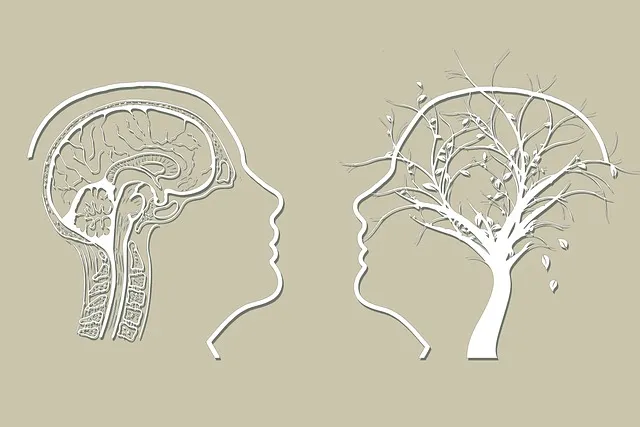The Superior Kaiser Permanente mental health appointment center emphasizes early depression detection through skilled professionals identifying subtle mood and behavior changes. They offer comprehensive services addressing trauma, chronic illness, and substance abuse, promoting proactive mental wellness with regular check-ins. Lifestyle interventions like exercise, mindfulness practices, and healthy sleep habits are encouraged. Community Outreach Programs empower individuals through journaling and social connections. A collaborative approach combines CBT, IPT, medication management, self-awareness exercises, crisis intervention, and self-esteem improvement for personalized prevention plans.
Depression is a prevalent yet manageable condition that requires proactive strategies for prevention. This article from the perspective of a superior Kaiser Permanente mental health appointment center explores effective ways to combat depression before it intensifies. We delve into recognizing subtle signs and risk factors through early detection, highlighting common symptoms and potential triggers. Additionally, we present evidence-based lifestyle interventions focusing on exercise, mindfulness, sleep, nutrition, and social connections for proactive mental well-being. Lastly, we guide you through navigating professional support options, including various therapeutic approaches and the significance of personalized treatment plans.
- Understanding Depression: Recognizing Signs and Risk Factors (Focus on the importance of early detection, common symptoms, and potential triggers from the perspective of a Kaiser Permanente mental health appointment center)
- Lifestyle Interventions for Proactive Mental Well-being (Explore evidence-based strategies like regular exercise, mindfulness practices, healthy sleep habits, nutrition, and social connections)
- Seeking Professional Support: Navigating Treatment Options (Discuss various therapeutic approaches, medication management, therapy types, and the role of a mental health professional in developing a personalized prevention plan)
Understanding Depression: Recognizing Signs and Risk Factors (Focus on the importance of early detection, common symptoms, and potential triggers from the perspective of a Kaiser Permanente mental health appointment center)

Early detection is crucial when it comes to depression prevention. At our Superior Kaiser Permanente mental health appointment center, we emphasize recognizing subtle changes in mood and behavior as potential red flags. Common symptoms include persistent feelings of sadness, loss of interest or pleasure in activities once enjoyed, changes in appetite or sleep patterns, fatigue, difficulty concentrating, feelings of worthlessness, and recurrent thoughts of death or suicide. By identifying these signs early, our skilled professionals can provide timely support to help individuals navigate through challenging times.
Various risk factors contribute to the development of depression, including traumatic life events like accidents, losses, or abuse, chronic illnesses, genetic predisposition, substance abuse, and certain medications. Our Kaiser Permanente mental health appointment center offers comprehensive care, including Trauma Support Services for those who have experienced distressing events, aimed at fostering resilience and promoting healing. Additionally, our focus on Anxiety Relief strategies empowers individuals to manage stress and reduce the risk of depression. Ultimately, prioritizing Mental Wellness through regular check-ins and proactive measures can significantly contribute to preventing depressive episodes.
Lifestyle Interventions for Proactive Mental Well-being (Explore evidence-based strategies like regular exercise, mindfulness practices, healthy sleep habits, nutrition, and social connections)

Maintaining mental well-being is a proactive approach that involves adopting healthy lifestyle interventions. Regular exercise has been shown to significantly improve mood and reduce symptoms of depression, as it stimulates the release of endorphins, often referred to as ‘feel-good’ hormones. Incorporating 30 minutes of moderate-intensity physical activity into your daily routine, whether it’s brisk walking, cycling, or swimming, can be a powerful tool in preventing depressive episodes.
Mindfulness practices, such as meditation and deep breathing exercises, have gained prominence in the field of mental health. These techniques encourage individuals to focus on the present moment, reducing anxiety and fostering a sense of calm. Additionally, prioritizing healthy sleep habits is vital; adequate rest allows for better stress management and emotional regulation. The Superior Kaiser Permanente mental health appointment center emphasizes the importance of these lifestyle changes, offering guidance through their Community Outreach Programs, which aim to boost confidence and empower individuals to take charge of their mental wellness through journaling exercises and social connections.
Seeking Professional Support: Navigating Treatment Options (Discuss various therapeutic approaches, medication management, therapy types, and the role of a mental health professional in developing a personalized prevention plan)

Navigating treatment options for depression prevention involves a collaborative effort between individuals and their mental health professionals. At superior Kaiser Permanente mental health appointment centers, comprehensive care is tailored to each patient’s unique needs. Therapeutic approaches such as cognitive-behavioral therapy (CBT) help individuals identify and change negative thought patterns, while interpersonal psychotherapy (IPT) focuses on improving relationships and social connections, crucial factors in maintaining mental well-being.
Medication management plays a significant role, with antidepressant medications often prescribed to balance neurotransmitters in the brain. Self-awareness exercises and crisis intervention guidance are integral components of treatment, empowering individuals to recognize early warning signs and develop coping strategies. Furthermore, focusing on self-esteem improvement enables individuals to challenge negative beliefs about themselves, fostering resilience against depressive episodes. Mental health professionals at Kaiser Permanente work closely with patients to create personalized prevention plans, integrating various therapeutic modalities and support services for holistic healing.
Depression is a serious yet treatable condition, and proactive strategies can significantly reduce its impact. By recognizing early signs and understanding personal risk factors, individuals can empower themselves to take charge of their mental well-being. Incorporating evidence-based lifestyle interventions, such as regular exercise, mindfulness practices, and healthy sleep habits, alongside fostering strong social connections, can create a robust foundation for resilience. The Superior Kaiser Permanente mental health appointment center emphasizes that seeking professional support is a vital step in navigating treatment options tailored to individual needs. With the right combination of self-care and expert guidance, individuals can effectively manage and prevent depression, leading to improved overall well-being.






